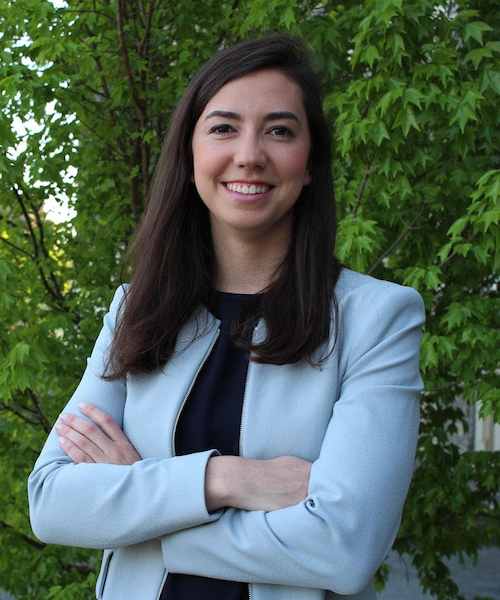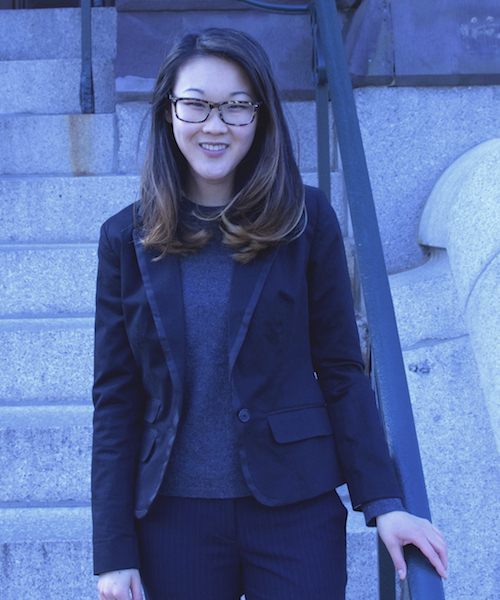
Ceiling and Visibility Unlimited—Reflection on the Georgetown Initiative at This Pivotal Moment
Junming Cui | 2019年8月30日
注:中英文网站上发表的学生日志均为英文。
After two weeks of meetings, three blog posts, and ten months of being a U.S.-China Student Fellow, I would like to share some of the valuable lessons this program has imparted upon me. First, it was unforgettable to hear Madame Fu Ying applaud CGTN’s Liu Xin the day after her live debate with Trish Regan on Fox News, as she expressed relief just to see more representation of Chinese voices on Western TV. It was striking, on the same day, to hear an official defense of China’s ethnic policies in Xinjiang, juxtaposed with the criticisms of journalists who had visited re-education camps in the region firsthand. Gaining exposure to these engaged, passionate, and critical figures in the U.S.-China relationship was one of the most rewarding aspects of this year-long program. However, what I really want to share in this final post is how the conversations held behind-the-scenes—on bus rides, over hotel breakfasts, and late at night before saying goodbye—shaped my learnings from the program and from the thoughtful and ambitious peers in it.
There are two main takeaways these conversations have left me chewing on. While the topics were centered on U.S.-China relations, both takeaways relate less to grand strategy and more to how to have productive and meaningful dialogue between people of different cultures and backgrounds. The first takeaway is that in order to have dialogue, you have to speak up. As a certain airport conversation reminded me, it is the responsibility of each participant in programs like these to actively share their thoughts and opinions with the group. Whether one feels like they lack sufficient knowledge to speak on an issue (as I often did) or feels disinterested due to over-familiarity with the arguments under debate, it is always better to contribute rather than to disengage.
While the discussions were fascinating and all of the fellows were engaged, it was often only behind-the-scenes where I was able to access people’s genuine thoughts on a wide range of issues. Personally, I found the discussions to be held in a similar manner as the American college seminar—a format in which many American fellows confidently shared their opinions, while some of the Chinese fellows kept their thoughts to themselves. Only when these thoughts were shared in private did I realize how big of a role cultural differences were playing and how our attempt at creating dialogue may have fallen short. Still, dialogue is dialogue, whether it be around the seminar table or in a one-on-one conversation. My takeaway from this is that, in order to have a more productive cross-cultural dialogue, we need to make sure that everyone feels comfortable and encouraged to speak up from day one. Otherwise, we might miss out on important perspectives that would benefit everyone to consider.
My second takeaway is to be wary of making arguments out of convenience. I was challenged to think about this after hearing multiple narratives regarding China’s ethnic policies in Xinjiang. It was easy for me to sympathize with rationales provided by government officials, which cited concerns of terrorism, separatist factions, and overall lack of socioeconomic development. It was easy to think, these people know what they’re talking about; they have the data and expertise to make the best decisions on how to govern parts of their country. Only after hearing the criticisms of journalists, activists, and some of our own fellows, did I remember that there were more sides to the issue than the official narrative provided. Yet considering these other sides required critical thinking, independent research, and a willingness to challenge authority. My takeaway from this is that, oftentimes, it is easier to agree with the official narrative due to the convenience of deferring to a higher authority. This can be dangerous, especially in places where freedoms of speech and the press are limited. Thus, it is important to always ask myself, whether I am choosing a side out of convenience, or if I have truly done my diligence and considered all sides before making a judgement.
My favorite part of the U.S.-China Student Fellows Program was undoubtedly the conversations and friendships it introduced me to. While the official program did not disappoint, it was the behind-the-scenes conversations that left me with lasting insights to chew on and promising relationships to build. I am confident that these relationships will not end here, and neither will the conversations that challenge us to question our assumptions, communicate our beliefs, and extend the limits of our understanding of one another.

Junming Cui | 2019年8月30日

Yihong Shi | 2019年8月30日

Zhaoqing Li | 2019年8月30日

Isabelle Hupez | 2019年8月29日

Ivan Solomon | 2019年8月29日

Jozanne Murphy | 2019年8月29日

Xiaogu Xu | 2019年8月29日

Aaron Baum | 2019年8月28日

Chang Fan | 2019年8月28日

Danny Li | 2019年8月28日

Lakshmi Iyengar | 2019年8月28日